Voice of Cards: The Isle Dragon Roars Review on PS5
Voice of Cards: The Isle Dragon Roars isn’t actually a card game — it’s an RPG with a card-based aesthetic. And while the eye-catching art direction and D&D campaign feel make for great initial attention-grabbers, Voice of Cards starts to lose steam during its second half.
The story isn’t one that hasn’t been told before. There’s a dragon that suddenly appears to terrorize the Isle of Bliss and the Isle of Blight, and you follow a group of adventurers who get together to stop it after Queen Nilla starts the hunt. You take on the role of Ash, traveling with a witch named Melanie and a strange creature named Mar that looks oddly similar to a Quagsire from Pokemon.
Ash is a bounty hunter who’s in it for the money above all else, while Melanie seems to have a personal grudge against the dragon, along with all other monsters. The party will slowly grow as the journey continues, which only adds to the humor, bickering, and camaraderie.
There are many familiar and predictable story beats for anyone who has played a few RPGs before, but there are also some genuine twists and little surprises that keep things from getting stale.
Sadly, by the time those major plot points come around, the dragon-hunting journey overstays its welcome. It doesn’t help that there’s a serious case of “just talk it out” in this game that can get frustrating. If certain characters simply told each other what they knew or what they were thinking, a lot of the conflicts and aimless wandering could be avoided.

The first thing you’ll notice about Voice of Cards is that nearly everything in the world is a card, from the characters and their attacks to terrain and the menus. The dedication to the card motif is admirable and will draw you in instantly. The problems only start to appear once interest in the gimmick begins to fade.
Despite that, the music, audio cues, and excellent voice acting from the Game Master all come together to bring this card world to life. The Game Master can be playful, serious, and informative all while giving an expressive performance, which is great because he’s the only voice actor in the game.
It’s a shame we can’t hear some of these intriguing characters speak with their own distinct personalities. It would be nice to actually hear Ash ranting about not sharing his dragon-hunting reward money as Melanie scolds him, but the Game Master does an excellent job regardless.
When the game shows you that you’re in a bustling castle or dank cave, you can really feel and believe it, even though there’s no true 3D depiction of the surroundings.
The detailed art on each of the cards also does wonders in painting understandable visuals while the narrator provides portrayals of characters. And if that isn’t enough for you, each card you encounter is added to a Collection that can be viewed alongside additional info about the character, location, or item the card depicts.
Though, I do wish that there was a faster way to get to that menu. The game lets you know when you’ve unlocked additional story details on the back of a card, so it would be nice if it just let you read that new info immediately — or at least had a shortcut to get there faster. The menus can become a bit cumbersome and clunky because of the whole “everything is cards” thing. Waiting for cards to shuffle around to equip armor or save the game isn’t exactly ideal.
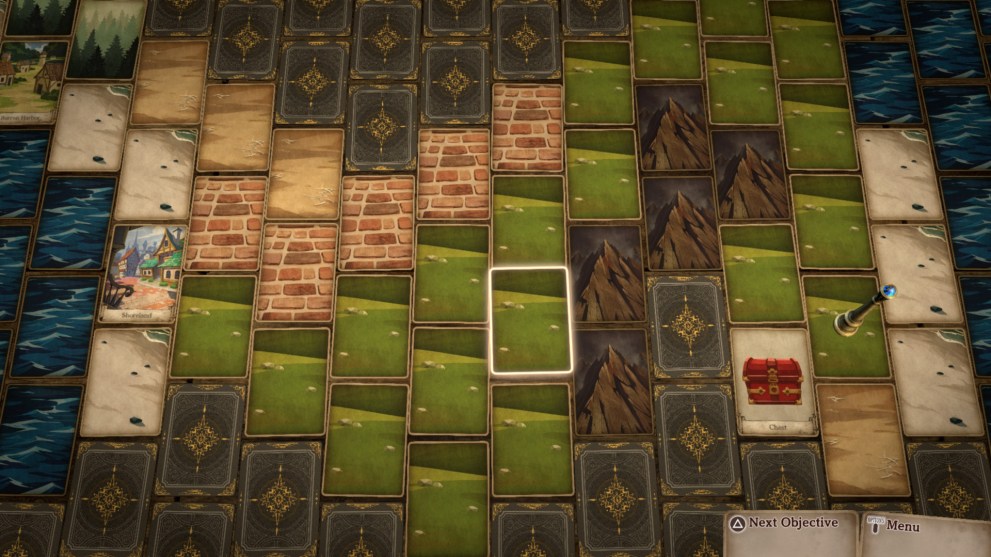
Thankfully, that cumbersome feeling doesn’t hinder the combat. Battles start from random encounters and Voice of Cards has a turn-based combat system that happens on a game board. There are skills, abilities, and other powers that make use of dice and gems as attacks get used. Gems are spent to use stronger skills, and stronger skills require more gems to use. They’re gained every time a character takes an action, and 10 can be held at one time.
There’s also an element system here to take note of when in combat. The six elements in Voice of Cards are fire, water, bolt, wind, light, and dark. Enemies can be weak or resistant to these elements, so knowing what to use and when to use it will give you the upper hand in battle. And since the party can only fight using three characters at once with four skills each, it can be tricky to cover all your bases when it comes to buffing, healing, and attacking.
Another interesting feature when it comes to combat is the appearance of Happenstance Cards, which are cards that appear randomly depending on the situation the party is in. These cards carry effects that can alter character statuses and provide buffs or nerfs to allies or enemies.
Happenstance Cards, status effects, and elemental weaknesses all enhance the battles in different ways by adding a layer of strategy. With that said, fights can become more of a chore than anything else as you grind your way through a few tedious, uninspired late-game dungeons while watching the same moves happen repeatedly.
The card animations for each attack in combat are appreciated, but it would be nice to be able to skip them with a button press, or at least speed them up like in Bravely Default, since random battles happen so often when venturing outside of towns. Watching the combat game board slowly get pulled out or put away at the beginning and end of each encounter got old fast.
More cracks in Voice of Cards will show as the journey progresses, and the little issues go beyond the combat.
There are many cards that repeat, so a number of less important NPCs will look the same, just like in other RPGs. It’s only more noticeable here because they’re all laid out near to each other with the exact same card art and there aren’t many NPCs in general.
For example, it’s just a bit odd to see so many regular human characters inhabiting a town in the middle of a forest that’s supposed to be full of Woodlanders (AKA elves). The problem is that there are only two cards depicting Woodlander NPCs — one male, one female. So, ironically, there just aren’t enough cards to populate a believable elven village.
Though, the designs are all amazing, from the most basic townsperson to Queen Nilla herself. That goes for the monster art as well. It’s all memorable and full of personality. So much so that I’d buy an actual deck of these cards if they made it available.
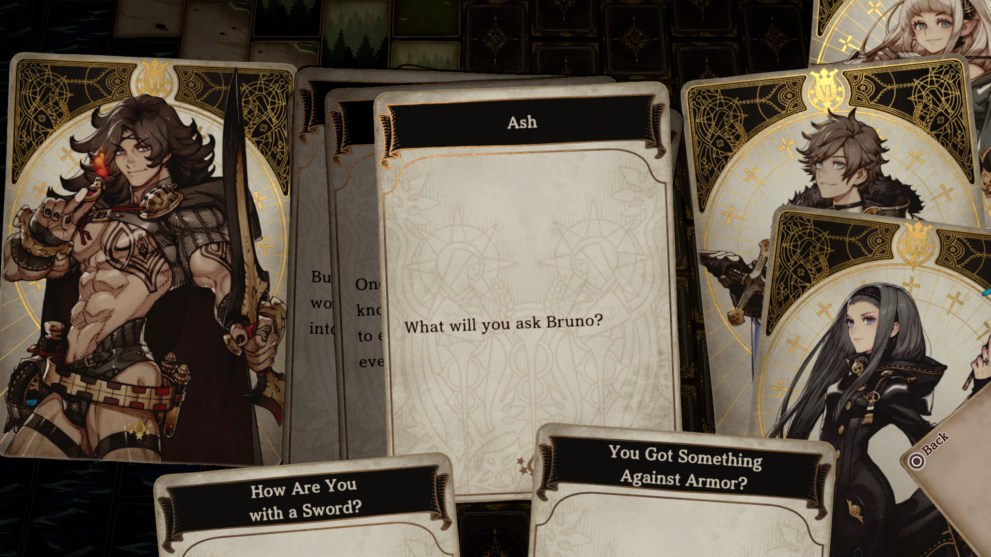
Voice of Cards: The Isle Dragon Roars is a creative and unique RPG from an art and design standpoint, without a doubt. The D&D campaign feeling and unique card world might just be enough to keep you pushing through as the original awe dies out.
However, for some, that may not be enough. When you’re climbing up to the fifth floor of a late-game dungeon while fighting battle after battle in a bland-looking environment, it’s tough to stay engaged or excited, even though it’s a relatively short experience overall.
- Eye-catching and memorable art.
- Dedication to the card motif makes the game unique.
- Surprising and effective plot twists.
- Uninteresting late-game dungeons are a grind.
- Battles become more tedious as the game progresses.

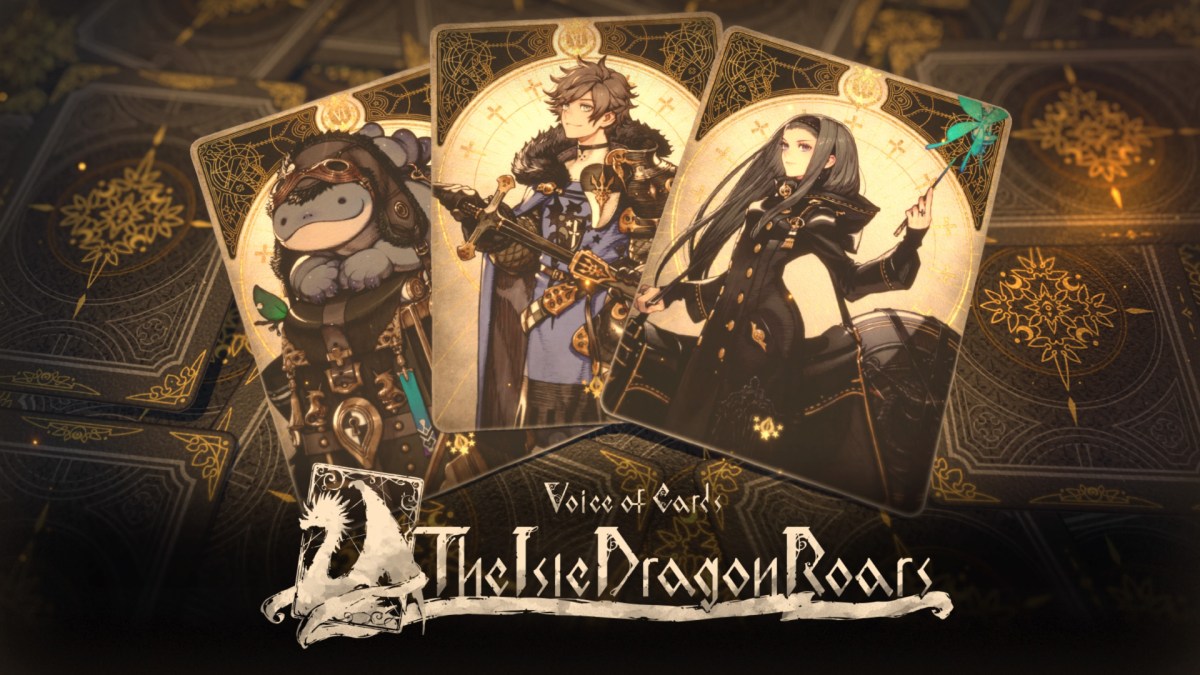

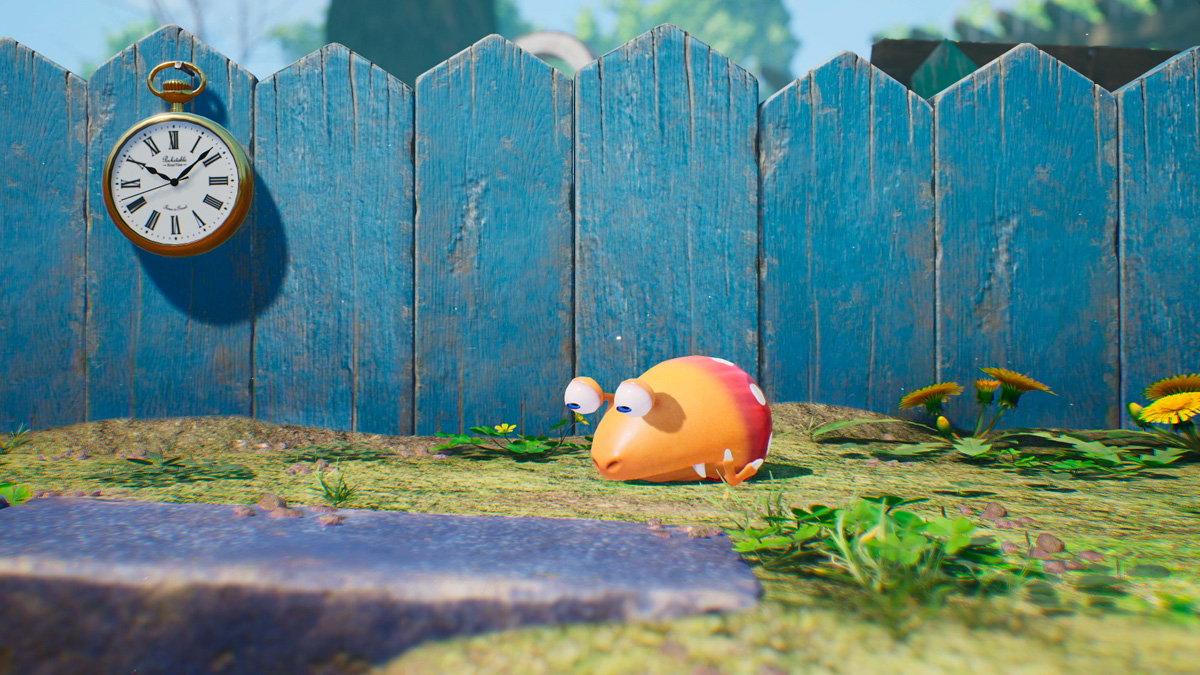


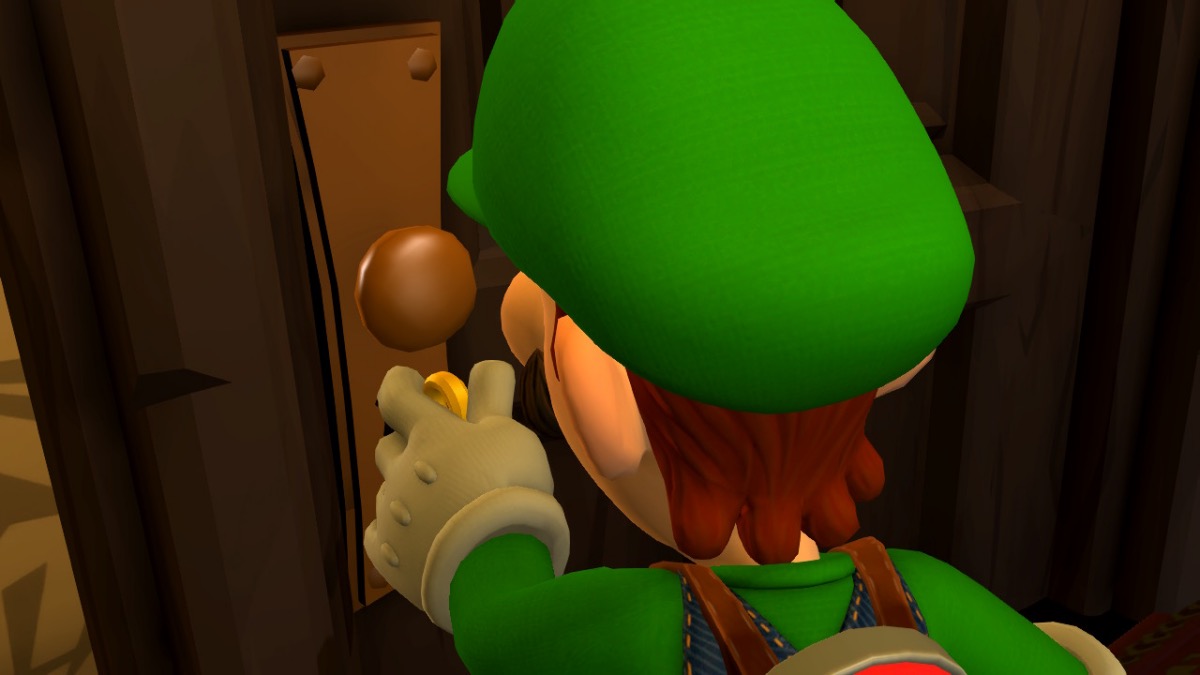

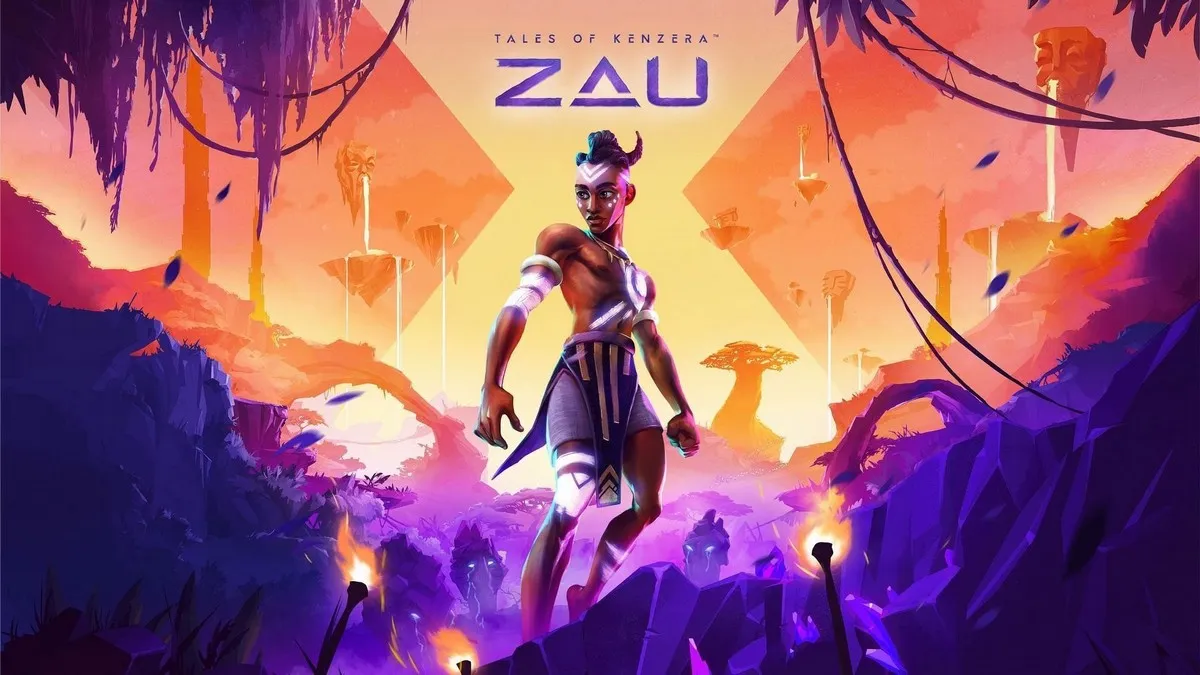




Updated: Nov 2, 2021 11:16 pm